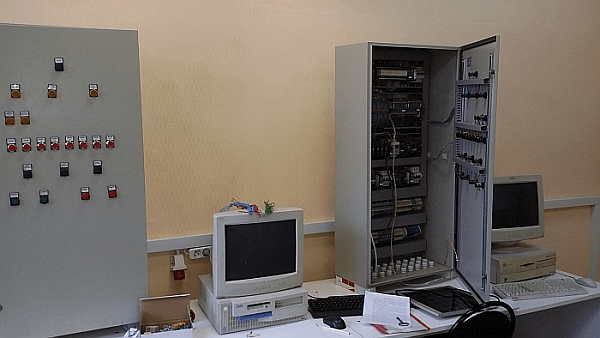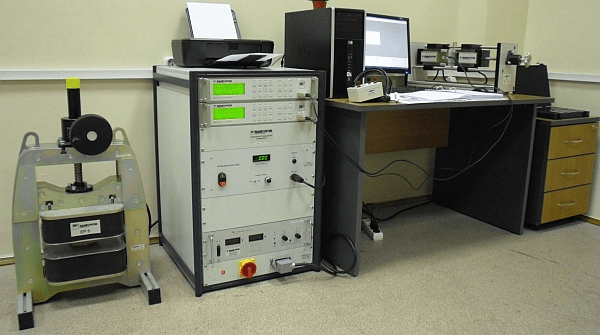- In the course "Synthesis of the MCU control systems for electrical and electronic apparatus", students learn the design methods of the programmable logic controllers based control systems for electrical and power electronic apparatuses.At the lab, students will solve practical problems, for example, automatic transfer switch or AC motor starter realisation.
![]()

Fig.1 - Low voltage distribution switchboard with PLCs
Pemagraph – Remagraph – Combination C 750 is an automatic, computer controlled instrument for measuring the (quasi-)static hysteresis loops (DC) of soft magnetic materials.

Fig.2 - Automatic, computer controlled instrument Pemagraph – Remagraph C 750
Special features of the REMAGRAPH
- Automatic measurement of the static hysteresis loops of soft magnetic materials
- Measurements on ring specimens
- Measurements on bars or strips in a permeameter yoke
- Precise measurement of the field strength H with a potential coil directly on the specimen surface.